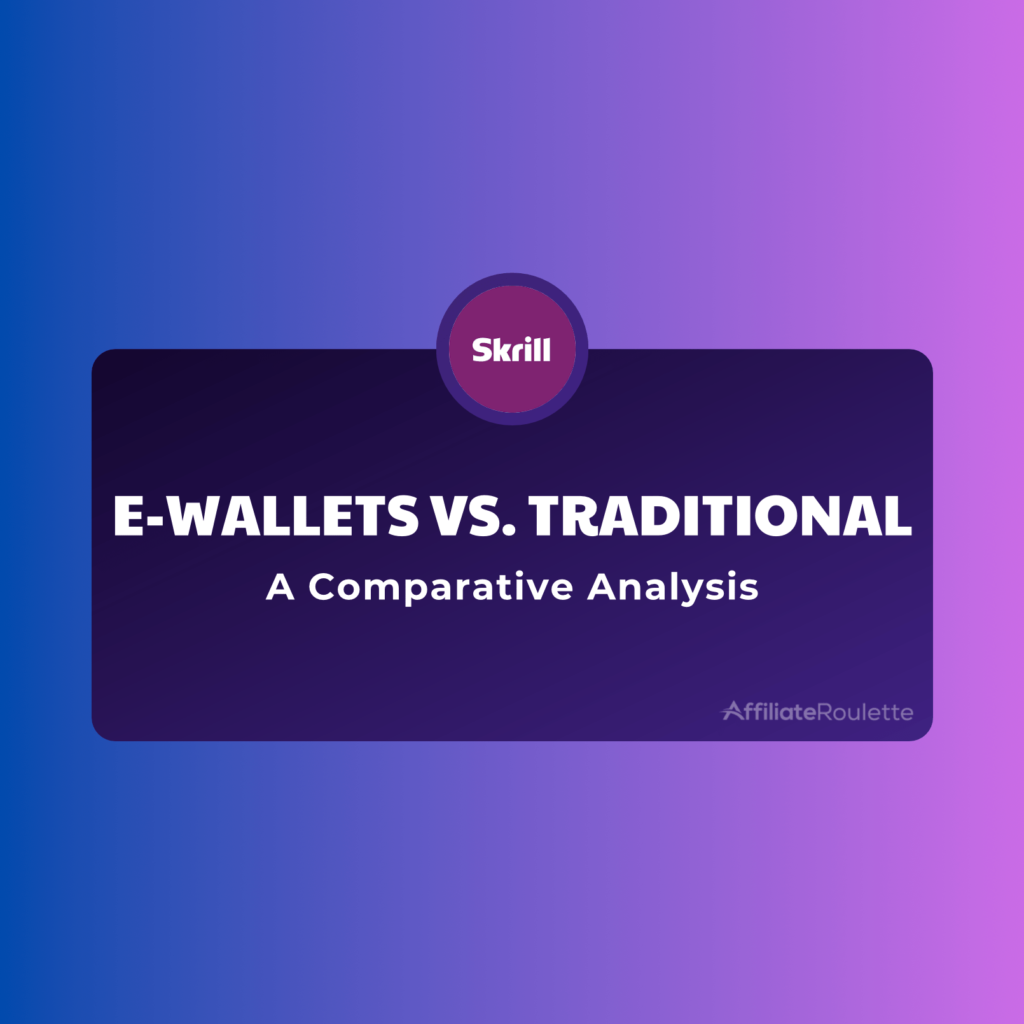E-wallets vs. Traditional Banking in iGaming: A Comparative Analysis

The iGaming industry’s meteoric rise demands payment methods that can keep pace with its dynamic environment. While traditional banking methods have been the cornerstone of financial transactions, e-wallets have emerged as the modern counterpart, particularly suited to the digital age. In this comparative analysis, we explore the merits and demerits of both, shedding light on their relevance in the iGaming world.
1. Speed of Transactions
E-wallets: One of the primary advantages of e-wallets is the speed. Deposits and withdrawals are almost instantaneous, ensuring players can start their gaming experience or access their winnings without delay.
Traditional Banking: Bank transfers, credit/debit card transactions, and even checks can take days to process, especially for withdrawals, causing potential frustration for players.
2. Convenience
E-wallets: E-wallets, being digital-first solutions, are optimized for online transactions. They often come with intuitive mobile apps, allowing players to manage their finances on-the-go.
Traditional Banking: While many banks offer online banking services, they might not be as streamlined or tailored to the iGaming experience as e-wallets.
3. Security
E-wallets: Renowned e-wallets employ advanced encryption techniques, two-factor authentication, and sometimes even biometric verification. They also allow for safe transactions without revealing sensitive bank details to the iGaming operators.
Traditional Banking: Banks have robust security mechanisms, and credit/debit card transactions often come with added layers of security. However, they might expose more sensitive information during transactions.
4. Fees and Charges
E-wallets: While e-wallets might offer free registrations, they can come with fees for transactions, top-ups, or currency conversions.
Traditional Banking: Depending on the bank and region, transaction fees might be higher or lower than e-wallets. Some banks also charge for international transactions or currency conversions.
5. Global Accessibility
E-wallets: E-wallets often provide a universal solution, catering to players from various regions and supporting multiple currencies.
Traditional Banking: Not all banks operate internationally or support all currencies, potentially complicating transactions for international players.
6. Trust and Perception
E-wallets: While many e-wallets have built trust over time, newer entrants in the market might struggle with player trust initially.
Traditional Banking: Banks, with their longstanding history and regulatory oversight, often carry an intrinsic trust factor, especially with a more traditional audience.
7. Integration with iGaming Platforms
E-wallets: Being digital solutions, e-wallets often offer seamless integration with iGaming platforms, ensuring a smooth user experience.
Traditional Banking: Integration might not always be as seamless, especially if the bank has stringent policies regarding iGaming transactions.
Conclusion: A Balance of Old and New
Both e-wallets and traditional banking have their strengths and challenges in the iGaming context. While e-wallets offer speed, convenience, and modern features, traditional banking provides trustworthiness and familiarity. The best payment method largely depends on the individual player’s priorities and the operator’s target audience.



